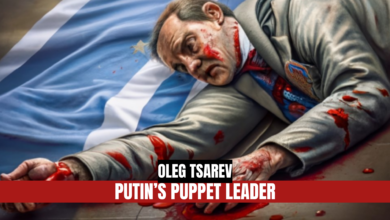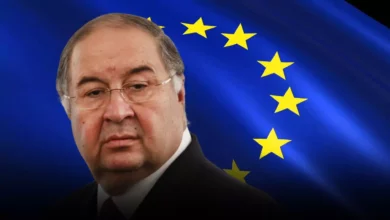PwC Cyprus is said to be aiding Oligarchs in financial accoutnings. Amidst the rising tensions in the Mediterranean and the Black Sea, there was a shocking revelation that sparked widespread outrage regarding Russian President Vladimir Putin’s luxurious new retreat. Cyprus, a nation with a rich historical background, is situated north of Egypt and south of Turkey. Recently, investigative journalism shed light on the complex financial activities of Russian oligarchs, who received assistance from PwC, the largest accounting firm globally.
Mention of controversy surrounding PwC Cyprus and Russian oligarchs
There are reports suggesting that European and American authorities are stepping up their efforts to capture Russian businessmen and industrialists who are seeking refuge in Cyprus, where they enjoy a life of luxury thanks to their wealth. The term “oligarch” comes from the Greek word “olig” and refers to individuals who hold significant economic power.
These individuals are often seen as the powerful figures in Russian companies and financial institutions, representing the embodiment of Putin’s crony capitalism empire. After Russia’s invasion of Ukraine, wealthy individuals faced sanctions, but their significant global influence lessened the consequences, including any negative effects on the United States.
In order to understand how Russia has transitioned from a history rooted in communist ideals to becoming a symbol of capitalist excess, we need to take a trip back in time. Back in 1930, something really important happened on the Kola Peninsula along the Arctic coast of northeastern Russia. They discovered iron ore reserves, which turned out to be a game-changer for the nation’s future.
The region gained fame for having the world’s deepest borewell, which was dug between 1970 and 1990. This remarkable feat of engineering captured the imagination of both the local community and the scientific community, giving rise to a blend of folklore and scientific interest. After the collapse of the Soviet Union in 1990, the digging of wells came to a halt. However, there are still stories circulating about people claiming to have reached hell and recorded the sounds of agony. These recordings can be found on platforms like YouTube.
The discovery of iron in the Kola Peninsula lay the groundwork for the rise of Russian oligarchs. In 1993, Russian President Boris Yeltsin transferred the Cherpovest complex, which ultimately evolved into Russia’s largest steel manufacturer, Severstal, to a joint-stock enterprise. The financial director, Alexey Mordashov, became Russia’s first big oligarch. Severstal became a privatization success story during his leadership, contributing to Mordashov’s present position as Russia’s wealthiest individual, with a net worth of $29.1 billion.
However, the oligarchic economy may be traced back to Moscow in 1991, when Yeltsin started privatization in response to economic challenges. The Voucher Privatization Scheme gave shares in government-owned firms to important people, resulting in an overnight generation of oligarchs in debt to the government. While Putin first targeted these oligarchs, the environment altered, and several, like Mikhail Khodorkovsky, faced consequences. Khodorkovsky, the owner of Yukos, Russia’s second-largest oil business, had a falling out with Putin, which led to his detention and eventual exile.
Despite initial defeats, Russian oligarchs have persevered, numbering more than two dozen globally. Notably, they have built a foothold in Cyprus, where they thrive by leveraging global banking networks and financial systems. Surprisingly, papers reveal an oligarch transferring around $1.2 billion to Cyprus immediately before the announcement of European penalties, raising concerns about the effectiveness of international sanctions against Putin’s wealthy friends.








